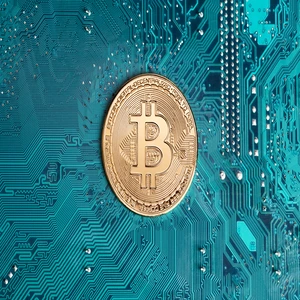Ripple CEO Brad Garlinghouse Declares: “The Trump Bull Market is Real”
In a bold statement, Ripple CEO Brad Garlinghouse has proclaimed that the “Trump bull market is real,” as the company rides the wave of political and economic change in 2025. After years of grappling with regulatory challenges under Gary Gensler’s SEC, Ripple is making a resounding comeback, fueled by a new pro-crypto administration and Congress.
Ripple’s U.S. Revival: A Strategic Shift
Ripple, a leader in blockchain-based payment solutions, has pivoted sharply back to the U.S. market. A staggering 75% of Ripple’s current open positions are now U.S.-based, marking a major shift from its previous international hiring focus during a turbulent regulatory period.
According to Garlinghouse, Ripple signed more U.S. business deals in the last six weeks of 2024—following Donald Trump’s presidential victory—than in the previous six months combined. He credited key figures in Trump’s circle, including Scott Bessent, David Sacks, and Paul Atkins, for fostering innovation and driving job growth in the crypto sector, even before the new administration takes office.
A Pro-Crypto Congress Fuels Optimism
Garlinghouse has hailed the 119th Congress as “the most pro-crypto Congress in history.” This Congress, heavily backed by $135 million in campaign contributions from crypto elites, is expected to drive sweeping legislative changes. Their agenda includes eliminating SEC lawsuits targeting the crypto industry, opening global banking access, and creating a U.S. Bitcoin reserve.
The alignment of a pro-crypto Congress with Trump’s administration is creating unprecedented momentum for the industry. Lawmakers appear poised to tackle long-standing regulatory hurdles, enabling companies like Ripple to thrive in a more supportive environment.
Global Financial Shifts Challenge U.S. Dominance
As the U.S. embraces a more crypto-friendly stance, global financial systems are undergoing a seismic transformation. Countries in Asia and the Middle East, including Thailand, Hong Kong, and the UAE, are aligning with China’s mBridge initiative. This platform leverages central bank digital currencies (CBDCs) to facilitate cross-border payments while reducing reliance on the U.S. dollar and bypassing SWIFT.
Saudi Arabia joined mBridge in 2024, signaling a growing shift toward decentralized global finance. Meanwhile, Russia and China are using digital technologies to sidestep sanctions and reduce exposure to American financial oversight.
Tokenization: The Next Frontier
The tokenization of financial and real-world assets is becoming a critical growth area. Citigroup estimates the tokenization market could reach $4 trillion by 2030. Asian financial hubs like Hong Kong and Singapore are leading this revolution. Hong Kong is pioneering digital green bonds, while Singapore uses smart contracts to automate complex financial transactions.
Challenges for CBDCs and New Alternatives
Despite the global interest in CBDCs, their adoption faces hurdles. A recent survey revealed that only 13% of central banks now view CBDCs as the best solution for cross-border transfers, down from 31% in 2023. China’s digital yuan has also struggled to gain traction, prompting nations to explore alternatives like tokenized deposits. These deposits, backed by deposit insurance rather than reserves, offer a more flexible and attractive option for financial institutions.
Ripple’s Role in a Transforming Economy
As global financial dynamics evolve, Ripple is strategically positioned to capitalize on both domestic and international opportunities. The company’s renewed focus on the U.S. market, combined with the rising demand for blockchain-based solutions worldwide, underscores its potential to thrive in the new financial era.
With the Trump administration and a crypto-friendly Congress creating a favorable environment, Ripple’s resurgence is not just a comeback—it’s a statement of intent for the future of global finance.
Share This





